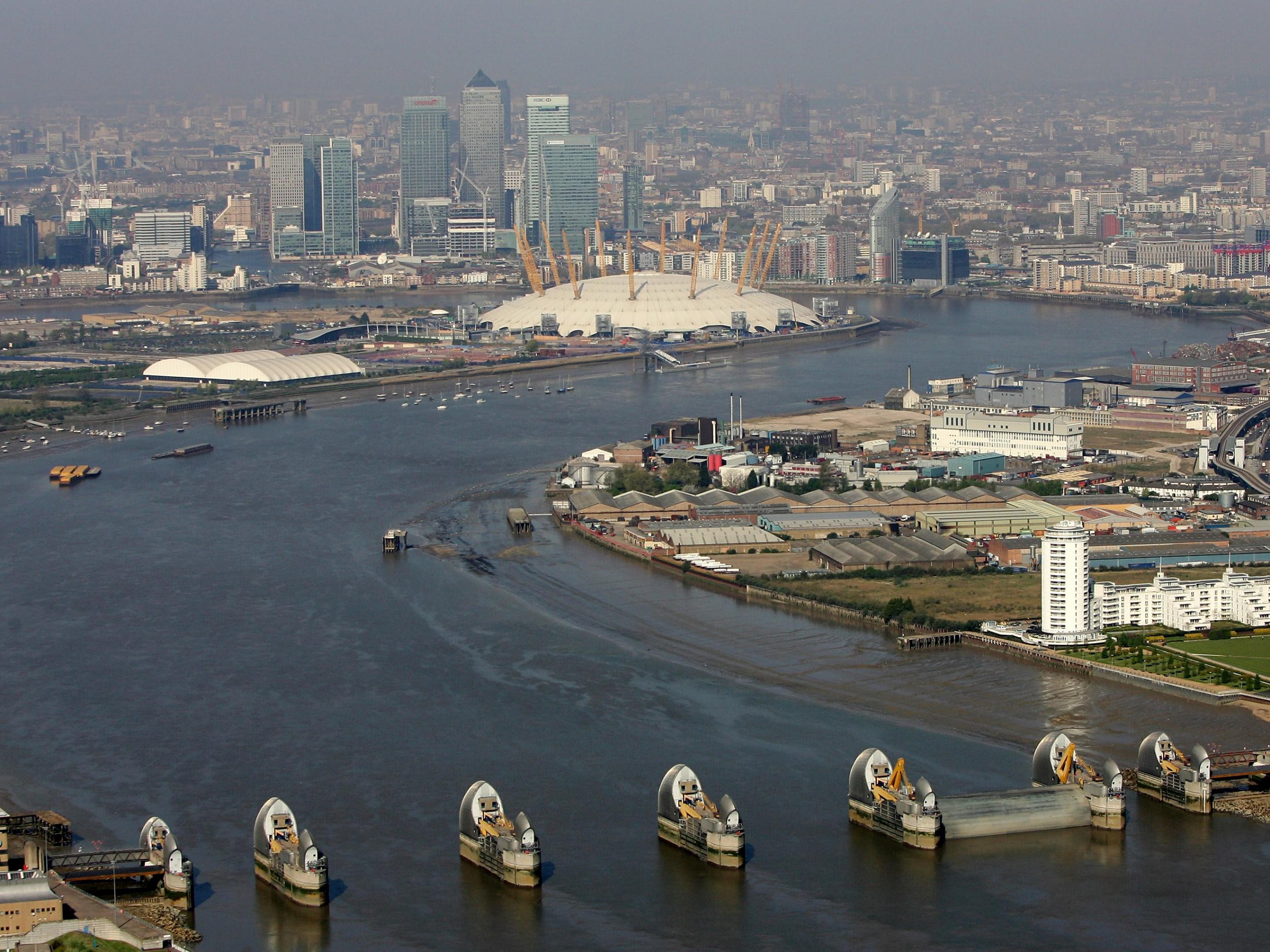London under threat of 'sinking' as global warming makes sea levels rise, new report finds
Analysis comes ahead of major international report on climate change

London is among the cities identified as being at risk of major flooding, according to a new report.
Sea levels are expected to rise by over 40cm unless global warming is limited to 1.5C above pre-industrial levels, the more ambitious target set by the Paris climate agreement.
An analysis released by Christian Aid as nations meet in Korea to finalise a major UN climate change report concerning the 1.5C target looks at some of the coastal cities most at risk.
Climate change could act as a “threat multiplier” to existing problems such as sinking ground and subsidence, water extraction and bad planning.
London’s sinking problem is largely a vestige of the last ice age when glaciers that weighed Scotland down and lifted up the south like a see-saw melted and reversed the effect, according to the study.
The UK capital is also increasingly vulnerable as a result of sea level rises, with the city having to use its key primary flood defence, the Thames Barrier, more frequently, the report said.
In 1984, when the barrier opened, its annual use was predicted to be two to three times a year, while it is now being used around six or seven times a year.
10 photographs to show to anyone who doesn't believe in climate change
Show all 10Houston, Texas, is vulnerable to flooding and subsidence due to extracting groundwater for its population and oil and gas, the report said, and sea level rises and storm surges will only exacerbate the problem.
Bangkok’s government published a report three years ago warning the city could be underwater in the next 15 years, sinking due to water extraction and heavy buildings pressing into the sediment.
With the city only 1.5m above sea level, rising seas are worsening the problems.
Shanghai is another city where groundwater use has caused subsidence and where heavy buildings are weighing down on the sediment it is built on, though it has taken strong measures to tackle these problems.
Manila in the Philippines; Jakarta, Indonesia; Lagos, Nigeria, and Dhaka in Bangladesh are all also threatened by problems such as subsidence, groundwater extraction, a lack of adequate drainage, the weight of buildings and the loss of natural flood protection including mangroves.
With the increasing threat of climate change-induced sea level rises, the report warns the causes of the cities sinking must be tackled and greater and more rapid cuts to greenhouse gases are needed to curb the rising seas.
Report author Dr Kat Kramer, Christian Aid's global climate lead, said: "We're starting to see what happens when climate change acts as a threat multiplier, compounding poor development decisions.
"We're already at around 1C of warming and we are getting a picture of what happens if we exceed 1.5C.
"Worryingly, the world is currently on track for more than 3C of warming, which would have disastrous consequences for the millions of people living in these coastal cities."
She urged governments to heed the findings of the forthcoming report and increase their pledges for climate action to curb temperature rises to no more than 1.5C.
The much anticipated report will emerge on Monday after months of intense debate by scientists.
Leaked drafts of the report have already suggested that the world is well on track to break the 1.5C target by the middle of the century.
Governments will therefore have to seriously ramp up their efforts to cut greenhouse gas emissions in order to avoid the worst predictions made about climate change.
Additional reporting by PA.
Subscribe to Independent Premium to bookmark this article
Want to bookmark your favourite articles and stories to read or reference later? Start your Independent Premium subscription today.

Join our commenting forum
Join thought-provoking conversations, follow other Independent readers and see their replies